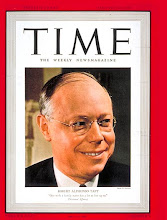While House Republicans’ repeal of Obamacare is laudable, the stark truth is that true repeal is still elusive. An alternative some have considered -- as opposed to waiting on the courts or a new government -- is to try nullification, the oft-maligned, seldom-employed tactic used by state governments where they refuse to enforce laws they deem unconstitutional.
Tom Woods of the Ludwig von Mises Institute has written not one but two recent books advocating nullification. In “Nullification” and “Rollback” Woods encourages the use of the tactic in a political landscape where choices between the two governing parties could hardly be worse.
No shortage of liberal writers have denounced Woods’ book or the idea of nullification. But when scholars in reputedly conservative journals join the dog-pile of their defense of the status quo, one has to wonder why these conservative intellectuals are so intent on letting unconstitutional legislation become more easily enshrined.
In the February 21, 2011 dead-tree issue of National Review (not online), Gettysburg College professor Allen C. Guelzo discards nullification and reaches a nearly identical conclusion as the liberal Princeton professor Sean Wilentz does in The New Republic.*
The subtitle of Guelzo’s “Nullification Temptation” is “Let’s stop Obamacare without blowing up the constitutional order.” In case Guelzo didn’t choose the title or subtitle himself, he immediate clarifies that there is no hyperbole when he refers to nullification as a “nuclear option” and declares “Its danger lies in how easily it could destroy not just Obamacare but the entire Constitution.”
Guelzo proceeds to list all the major events in the history of nullification: the Kentucky and Virginia Resolutions of 1798 and 1799, South Carolina’s attempt to nullify the 1832 “Tariff of Abominations,” and Wisconsin’s efforts to avoid enforcing the 1850 Fugitive Slave Act. Guelzo finishes this section by saying, “At no point, however, did nullification prevail.”
So if Professor Guelzo admits that nullification never prevailed against the comparatively miniscule federal government of the 19th Century, why is he saying that nullification today could “destroy . . . the entire Constitution” when Americans now live under a far more consolidated, bureaucratic, and intrusive state?
Does Guelzo expect his readers to believe that an America where cameras adorn nearly every intersection, IRS agents harass citizens for not relinquishing enough of their money to the state, and has a federal capitol employing more than 2 million, that even one state’s refusal to enforce Obamacare is enough to upend the whole edifice? A high school student wouldn’t get away with that sort of nonsense.
By opposing the very theory of nullification, liberal Wilentz and conservative Guelzo both endorse the criminalization of speech against the president (the Kentucky and Virginia Resolutions contra the Alien and Sedition Acts) and that slaves, even if they escaped to a free state like Wisconsin, had to be returned to their masters.
So why does Guelzo go to the trouble to discredit nullification? It makes sense for a liberal like Wilentz to recoil at any idea of resistance to the Washington leviathan. But why does someone posing as a proponent of limited government accept such a broad interpretation of the Constitution that would justify any and every expansive big government scheme?
One might assume that Guelzo might like to see nullification employed to frustrate Democratic health care legislation but that position forces him to confront what he cannot bear: What if someday Republicans pass legislation Democratic state governments find constitutionally wanting? Republican nullification would set the precedent that state governments can slow down or halt Washington’s machinations. To ensure that Republican monstrosities can govern the land Guelzo has to let Democratic fiascos remain too.
It’s the same reason Democrats haven’t repealed the Patriot Act and Republicans have never taken a scalpel to the welfare state. Both sides scream at each other but they always end up preserving each others’ programs. When the minority party becomes the majority they realize they can use their adversaries’ initiatives for their own gain.
If this is the state of the conservative opposition leading up to 2012 it’s no wonder a state-run health care operative like Mitt Romney is considered a serious contender to unseat a state-run health care operative like President Barack Obama.
*The title of Wilentz’s blog is “States of Anarchy.” In Guelzo’s, he calls nullification “the spirit of anarchy.” When historians who are supposed to represent two different sides of the spectrum end up with arguments and rhetoric so similar that one could almost charge the other with plagiarism, it is hard to refute the claim that there isn’t a dime’s worth of difference between the parties.
Thursday, February 17, 2011
National Review stands beside History yelling "Go!"
Subscribe to:
Post Comments (Atom)















2 comments:
There are cases where citizens need their States as they, as individuals, are losing their rights. Prime example, FDR and the Japanese concentration camps.
Who but California or Oregon, etc. could save the Japanese by saying NO to FDR?
When they came for the jews, I was not jewish.... Don't cha no.
"See Publius Huldah smackdown Professor Guelzo on nullification."
http://canadafreepress.com/index.php/article/35583
Post a Comment